Texts: Job 38:1-18 + Psalm 104:1-9,24-26 + Luke 5:1-11
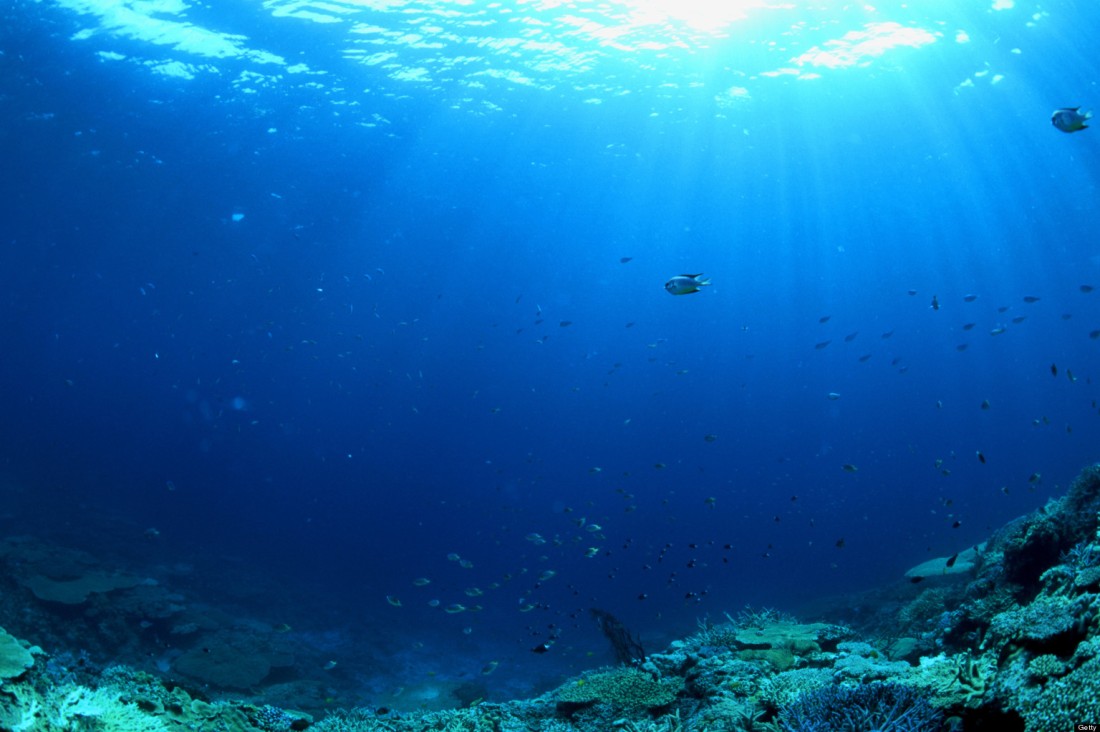
To begin, consider closing your eyes and picturing the ocean. Have you been to the ocean? Have you walked barefoot along its shores, shoes dangling from your hand? Have you heard that sound, the ceaseless tide, washing the land with its salty waves? Have you sensed its infinite depths?
Standing at the edge of the ocean is like standing at the border to a country most people never truly enter. Our bodies ride the waves at its very edges like the tiniest pieces of flotsam and jetsam, not even driftwood, as its wet gravity takes us wherever it wants. Our boats skim the surface of its unseen interior the way dandelion seeds ride the currents of our breath without ever seeing the insides of our lungs.

Next to the oceans, our continents seem petite. The oceans cover 71% of the earth’s surface, and the ocean floor extends miles below its waves. The land covers only 29% of the earth’s surface, and we live our lives on the thinnest crust of earth and sky. Imagine the largest animal that roams the Earth’s lands, the African bush elephant (weighing in at 3 tons), next to the largest sea creature known to humanity, the blue whale (weighing in at over 150 tons). But the oceans do not dwarf the continents only in terms of size, but in their diversity as well. For every massive blue whale there are an infinity of delicate coral reefs, surreal squids and octopi, strains of life that predate humanity by millennia, yet look like they must have come from another planet. Beyond the sandy beaches, beyond the metronomic waves, there is another world filled with neighbors we have yet to meet, though they have already been introduced to us.
Just yesterday afternoon, as Erin and I were preparing for this morning’s worship service, a man walked through the front door carrying a cardboard box and wearing an irritable frown. As I greeted him I could see that his box was filled with our trash: last week’s bulletins, copies of old newsletters, discarded mail. It was all clearly recyclable. In fact, we had tried to recycle it, but the trash bins in the alley are so full that neighbors have resorted to dumping their waste wherever they can find space. Failing that, they are setting it on ground, where the winds carry it away, blowing it down the alley. This is how our new neighbor met us for the first time, through our trash.
The same is true for our oceanic neighbors but with far worse consequences. By now it’s no longer news when we hear once again that “ships on the high seas routinely dump trash and sewage into the ocean,” or “that plastic pollution has permeated the entire ocean forming massive gyres, with plastic pollution being found even in the once pristine Arctic Sea.” But, beyond our trash, the massive levels of carbon dioxide generated by our automobiles and other fossil fuel consumption — coal, natural gas, and oil — are “dissolving into the ocean, making it more acidic.” Meanwhile, rising global temperatures have bleached vast swaths of the world’s coral reef in a matter of just a few years, endangering shoreline protections from ever-more-severe tropical storms and eliminating natural habitats for endangered species.
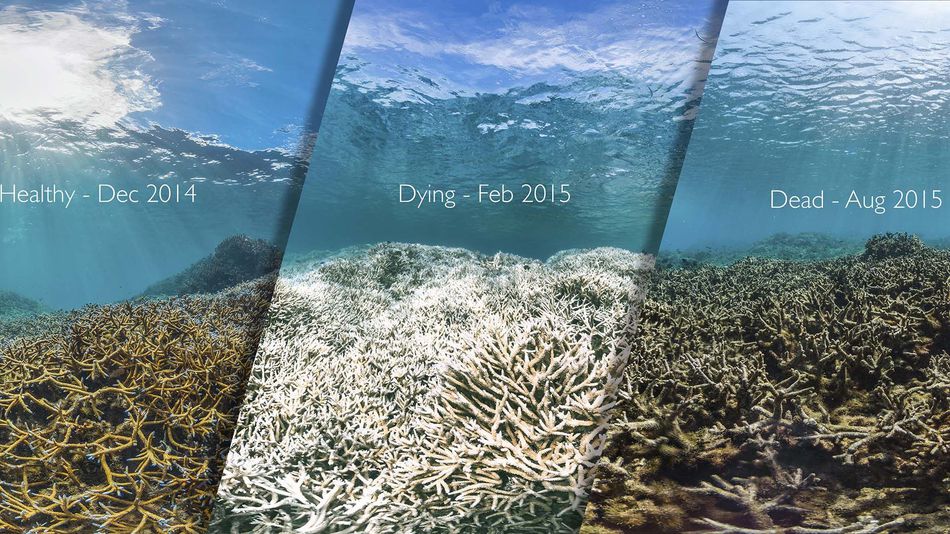
The hubris we have displayed as a species threatens our very existence, but it is not new. In fact, it is the topic of perhaps the oldest piece of biblical literature in our holy scriptures, the Book of Job. If you’re at all familiar with Job, you know it concerns his quarrel with God over the justice of human suffering. Rather than answer Job’s complaints directly, God addresses Job’s mistaken notion that he is even capable of comprehending the wisdom by which God has ordered creation:
“Who is this that darkens counsel by words without knowledge?
Where were you when I laid the foundation of the earth?
Tell me if you have understanding.
Who determined its measurements — surely you know!
Or who shut in the sea with doors
when it burst out from the womb?
and said, ‘thus far shall you come, and no farther,
and here shall your proud waves be stopped’?” (Job 38:2,4-5a,8,11)
When we hung these rainbow banners back in June it was partially in recognition of Pride month, as a sign of our embrace of the sacred value of every human life at a moment when our nation was grieving the loss of those 50 lives that ended in a shower of bullets at the Pulse nightclub. This morning they speak to us of a different kind of biodiversity and remind us of God’s promise to Noah not to end the world by means of a flood. If only we had made the same promise in return. Instead, our lack of wisdom, our failure of resolve, our climate-change-denying “words without knowledge” (Job 38:2) have brought us to the precipice of a global disaster from which there may be no turning back.
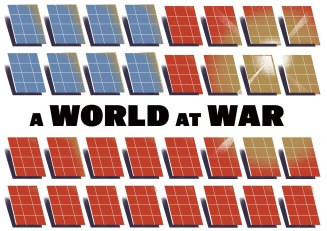 In an essay published by The New Republic titled “A World at War,” Bill McKibben — environmental activist, educator, and prophet of the climate crisis — cries out for the world to wake up to the hour that is upon us, and to band together to address the devastation we have begun before it brings an end to us all. I’ll post his essay this afternoon, and encourage you all to read it closely as we begin this Season of Creation, as it offers more than a diatribe, but also a roadmap to guide us out of the wilderness. Or, perhaps more apropos to the day, a constellation of bright ideas by which to navigate our way safely to the shore.
In an essay published by The New Republic titled “A World at War,” Bill McKibben — environmental activist, educator, and prophet of the climate crisis — cries out for the world to wake up to the hour that is upon us, and to band together to address the devastation we have begun before it brings an end to us all. I’ll post his essay this afternoon, and encourage you all to read it closely as we begin this Season of Creation, as it offers more than a diatribe, but also a roadmap to guide us out of the wilderness. Or, perhaps more apropos to the day, a constellation of bright ideas by which to navigate our way safely to the shore.
The true north star of his piece is the observation that for us to have any hope of survival, we must agree that we are fighting for our lives and that we intend to win the fight. We need to move beyond optional, feel-good, individual responses to environmental degradation and demand that the world’s nations and leaders take swift, decisive action to reverse global warming and all its deadly effects. Which means “a fracking ban, a carbon tax, a prohibition against drilling or mining fossil fuels on public lands, a climate litmus test for new developments, an end to World Bank financing of fossil fuel plants.” Which means we need to get organized.
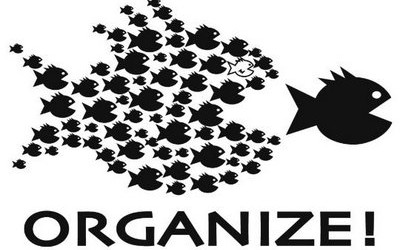 One of my early images of the idea of organizing came in the form of a poster that hung in classrooms and on campuses when I was a high school and college student. It showed a school of tiny fish swimming in the shape of a giant fish chasing down a single fish that, while larger than any of them individually was clearly no match for them together. Under the illustration was the single word: Organize.
One of my early images of the idea of organizing came in the form of a poster that hung in classrooms and on campuses when I was a high school and college student. It showed a school of tiny fish swimming in the shape of a giant fish chasing down a single fish that, while larger than any of them individually was clearly no match for them together. Under the illustration was the single word: Organize.
That image comes to mind as I hear the miracle story told in the gospel of Luke. Here again, we learn that the more things change, the more they stay the same, as Simon Peter tells Jesus that the people have been fishing all night with no luck. Just as factory fishing in our day has stripped the oceans of fish at an unsustainable rate, so in Jesus’ day the Roman Empire had transformed Galilee from a place of subsistence farming and fishing into an export economy to feed its legions in a manner that had impoverished the people and drained the sea of fish.
Then Jesus tells those who would follow him to “put out into the deep water and let down your nets for a catch.” (Luke 5:4) When they did as he said their nets were filled with so great a haul that their boats nearly sank. At that moment Jesus drew a parallel between the power of these tiny fish, which alone were barely a meal but together could sink a boat, and the people of Galilee, who alone were dying of poverty, but together could change the world. “Do not be afraid,” he said, “from now on you will be catching people.” (v. 10)
The hour has come for us to lose our illusions and to shed our fear. The moment is upon us to set out into the deep waters, the ways of being and becoming that we have sensed are possible but have seemed too difficult. Now it is time to get organized, to fight not only for life on this planet but for the life of the planet itself, its lands and its waters. To fight like the people of the Standing Rock Sioux Tribe has fought to prevent the Dakota Access Pipeline from defiling sacred lands. To fight together. Organized into a body greater than any special interest, organized for the self-interest of the Earth itself.
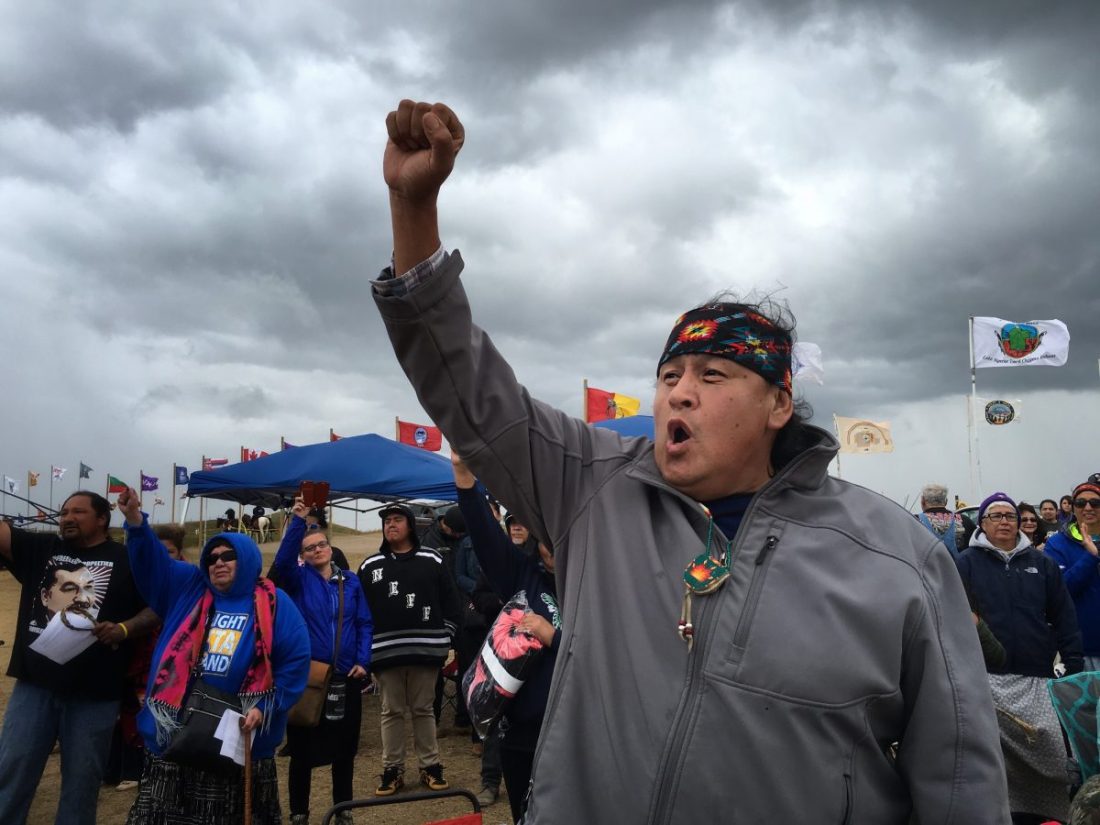
Amen.